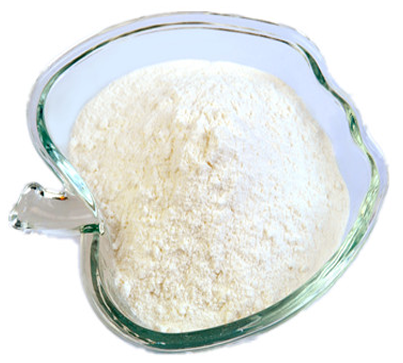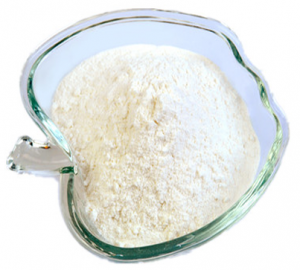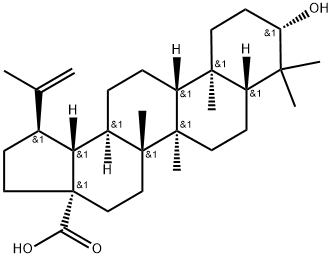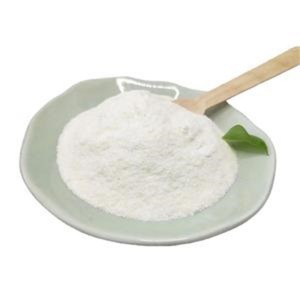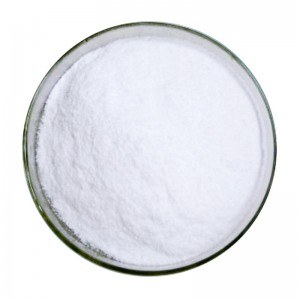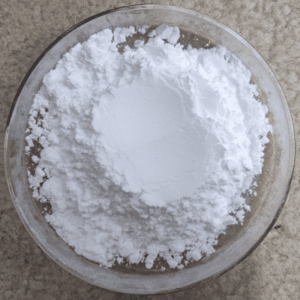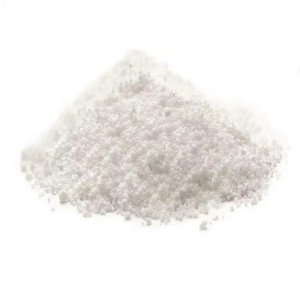| Basic Information | |
| Product name | Betulinic acid |
| Grade | Pharma grade |
| Appearance | White or off-white |
| Assay | 98% |
| Shelf life | 2 years |
| Packing | 25kg/drum |
| Condition | Stable, but store cool. Incompatible with strong oxidizing agents, calcium gluconate, barbiturates, magnesium sulfate, phenytoin, B group sodium vitamins. |
Description
Betulinic acid (472-15-1) is a natural Lupane triterpenoid from white birch tree (Betula pubescens). Induces apoptosis in a variety of cell lines.1 Induces mitochondrial permeability transition pore opening.2 ?Acts as a chemosensitizer for anticancer drug treatment in chemoresistant colon cancer cell lines.3 Cell permeable.
Use
Betulinic Acid is a natural pentacyclic triterpenoid. Betulinic Acid displays anti-inflammatory and anti-HIV activity. Betulinic Acid selectively induces apoptosis in tumor cells by directly activating the mitochondrial pathway of apoptosis through a p53- and CD95-independent mechanism. Betulinic Acid also exhibits TGR5 agonist activity.
Betulinic acid (BetA) has been used:
1.to test its effects as an antiviral agent against Dengue virus (DENV).
2.as a sterol regulatory element-binding protein (SREBP) inhibitor to repress the lipid metabolism and proliferation of clear cell renal cell carcinoma (ccRCC) cells.
3.as a treatment to test its anti-tumor properties for cell viability and apoptotic cell death assays in multiple myeloma models.
Anticancer Research
This compound is a pentacyclic triterpene obtained from Betula and Zizyphus species,which shows selective cytotoxicity against human melanoma cells (Shoeb2006). It generates reactive oxygen species, activates MAPK cascade, inhibitstopoisomerase I, inhibits angiogenesis, modulates pro-growth transcriptionalactivators, modulates the activity of aminopeptidase-N, and thereby inducesapoptosis in cancer cells (Desai et al. 2008; Fulda 2008).
Biological Activity
Natural triterpenoid that displays anti-HIV and antitumor activity. Induces the production of reactive oxygen species (ROS) and activates NF- κ B. Exhibits TRG5 agonist activity (EC 50 = 1.04 μ M).
Biochem/physiol Actions
Betulinic acid, a pentacyclic triterpene, selectively induces apoptosis in tumor cells by directly activating the mitochondrial pathway of apoptosis through a p53- and CD95-independent mechanism.

